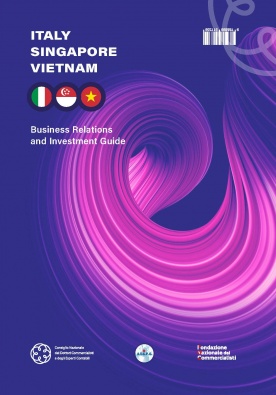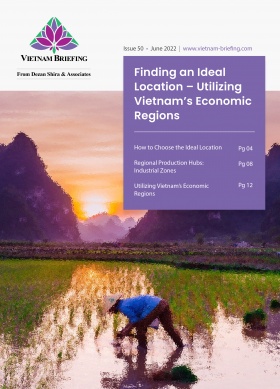ESG in Vietnam: Challenges but Significant Potential
Vietnam has significant potential in the field of Environmental, Social, Governance (ESG), but there are still challenges that need to be overcome to drive ESG investment, writes Marco Förster.
The ESG (Environmental, Social, Governance) investment landscape in Vietnam is generally on a positive path.
The Vietnamese Government’s promotion of ESG practices, the growing demand from investors, and the potential for increased returns are strong drivers of the trend. This matches with the general agenda for a sustainable economy and society.
More precisely, Vietnam has been taking steps to create an environment that is conducive to ESG investment, such as passing laws related to environmental protection, sustainable development, and corporate social responsibility.
In addition, many development financial institutions, such as the International Finance Corporation (IFC) and Asian Development Bank (ADB), have been actively encouraging investee companies to prioritize ESG issues.
Significant potential for ESG investment in Vietnam but challenges remain
While there is significant potential for ESG investment in Vietnam, there are also some challenges that need to be addressed. These include a lack of awareness and understanding of ESG principles among businesses and investors, inadequate legal and regulatory frameworks, and insufficient resources and infrastructure.To overcome these barriers, the government has recently launched initiatives such as the Sustainable Development Strategy Of Vietnam, the One Strategic Framework for Sustainable Development Cooperation, and the Vietnam Corporate Sustainability Index.
These initiatives are helping to raise awareness of ESG issues, create a better regulatory environment, and provide better resources for businesses and investors to make informed decisions about ESG investments.
Growing importance of ESG investment in the ASEAN region, Vietnam’s perspective
In comparison to other ASEAN countries, Vietnam stands out with large ESG challenges, due to higher exposure to high ESG risk industries. These include the steel industry and a rapidly expanding, and power-hungry, manufacturing sector.
Yet there is growing recognition that the adoption of ESG principles not only generates positive publicity and enhances a company’s reputation, but also creates real social and environmental impact.
Regionally, Singapore has consistently applied stringent ESG disclosure requirements. In the Philippines, its Securities and Exchange Commission now requires all publicly listed companies to submit sustainability information together with their annual report on a comply- or explain-basis.
Overall ASEAN is increasingly orienting itself to global ESG standards across the board, including green infrastructure, social impact, and transparency. However, many of the transition initiatives have timelines that go up until the year 2050 and beyond.
This can be a questionable timeframe for governments to choose if the ones in power now likely won’t be the decision-makers then.
Marco Förster is Head of the ASEAN Advisory Unit of Dezan Shira & Associates (DSA) specializing in operational compliance in Southeast Asia.
Appendix: Key Policies Related to ESG in Vietnam
Sustainable Development Strategy Of Vietnam
The Sustainable Development Strategy Of Vietnam was approved in 2012 by then Prime Minister, Dung Tan Nguyen. The strategy provides a framework for monitoring and evaluating Vietnam’s development and ensuring that it is sustainable
One Strategic Framework for Sustainable Development Cooperation
Signed in August of 2022, the One Strategic Framework for Sustainable Development Cooperation, outlines how the United Nations and the Government of Vietnam will coordinate in Vietnam’s sustainable development. The agreement addresses four key areas: social development, responding to climate change, disaster resilience, and ensuring environmental sustainability.
Vietnam Corporate Sustainability Index
The Corporate Sustainability Index, now in its 7th year, ranks businesses based on several key sustainability criteria. In 2022, 130 indicators were used to termine the sustainability of participants. These were developed based on the Labor Law, Environmental Law, the commitments Vietnam made at COP21 and COP26 as well as Global Reporting Initiative and ISO 26000 standards, alongside a broad range of ESG requirements embedded in Vietnam’s many free trade agreements.
About Us
Vietnam Briefing is published by Asia Briefing, a subsidiary of Dezan Shira & Associates. We produce material for foreign investors throughout Eurasia, including ASEAN, China, India, Indonesia, Russia & the Silk Road. For editorial matters please contact us here and for a complimentary subscription to our products, please click here.
Dezan Shira & Associates provide business intelligence, due diligence, legal, tax and advisory services throughout the Vietnam and the Asian region. We maintain offices in Hanoi and Ho Chi Minh City, as well as throughout China, South-East Asia, India, and Russia. For assistance with investments into Vietnam please contact us at vietnam@dezshira.com or visit us at www.dezshira.com
- Previous Article Investing in Vietnamese Startups: Quick Guide 2023
- Next Article Explainer: Vietnam’s Second Land Rent Cut for Groups Affected by COVID-19









